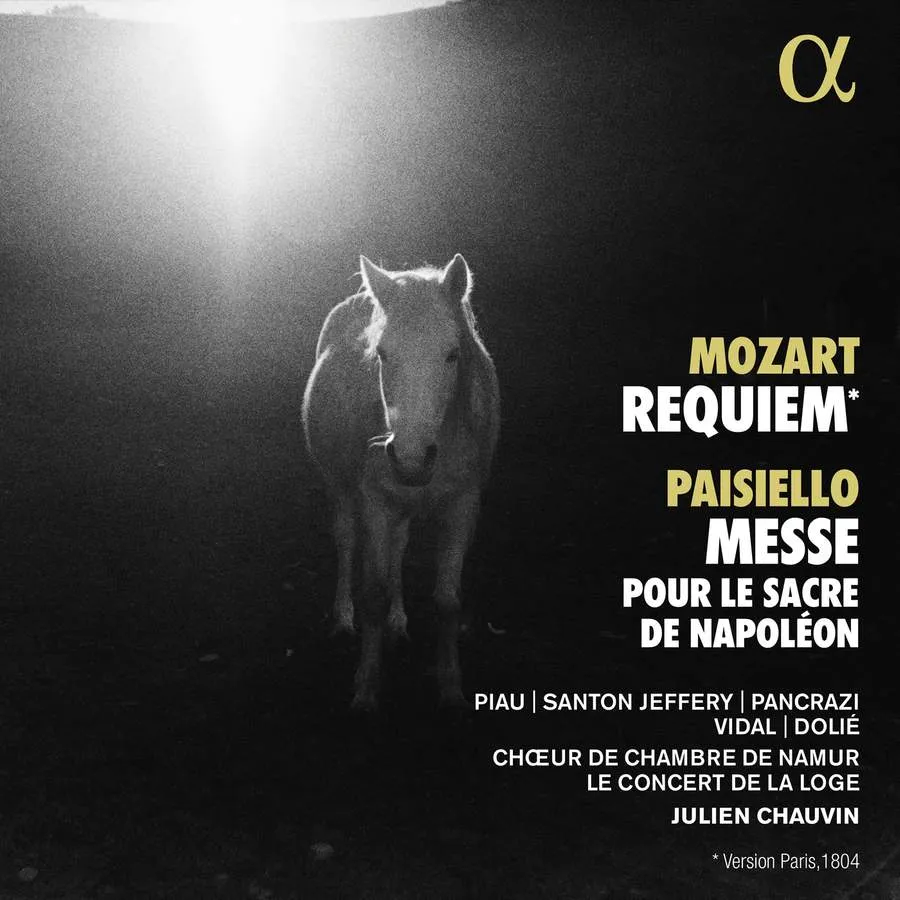
Mozart • Paisiello Mozart: Requiem; Paisiello: Messe pour le sacre de Napoléon Sandrine Piau, Chantal Santon Jeffery (soprano), Éléonore Pancrazi (mezzo), Mathias Vidal (tenor), Thomas Dolié (baritone); Chœur de Chambre de Namur; Le Concert de la Loge/Julien Chauvin Alpha Classics ALPHA 919 57:24 mins
Some time-travelling here, incisively done by Julien Chauvin and his period instrument ensemble Le Concert de la Loge, to the Paris of December 1804, when a certain ambitious Corsican was crowned Emperor of the rapidly expanding French Republic. Napoleon’s coronation – by the Pope, no less – was marked with an uplifting new Mass, now rarely heard, commissioned from Neapolitan Giovanni Paisiello. Shortly after came the French premiere of Mozart’s Requiem, as if to cement the reputation of the new Empire – and indeed, bookending it some 36 turbulent years later at Bonaparte’s burial in Paris.
Chauvin plays the Requiem as it was heard in 1804, a curious thing, the Parisian musical establishment playing fast and loose with the score to suit local taste. Fronted with an Introit from Jommelli’s established Parisian-crowd-pleasing Requiem, other mildly startling tweaks include the entire wind section blasting out the trombone solo (deemed too weedy) in the ‘Tuba Miram’.
Le Concert de la Loge treat it all with power and premiere energy, the Dies Irae driven along, never allowed to touch the ground, the ‘Rex Tremendae’ attentively articulated by orchestra and chorus – the excellent Choeur de Chambre de Namur – creating a true period storm with fine soloists including Sandrine Piau.
The Requiem’s power contrasts with the tastefully joyful Messe pour Le Sacre de Napoleon. The massed vocal forces of 1804 are trimmed for a smaller venue (and lack of Pope), but Chauvin’s forces seem to sing the authenticity of the era – or what we imagine it to be – the brass brilliantly explosive, the singers richly expressive, in this uncontroversial mass in welcome of the diminutive, aggrandising dictator.
Sarah Urwin Jones

